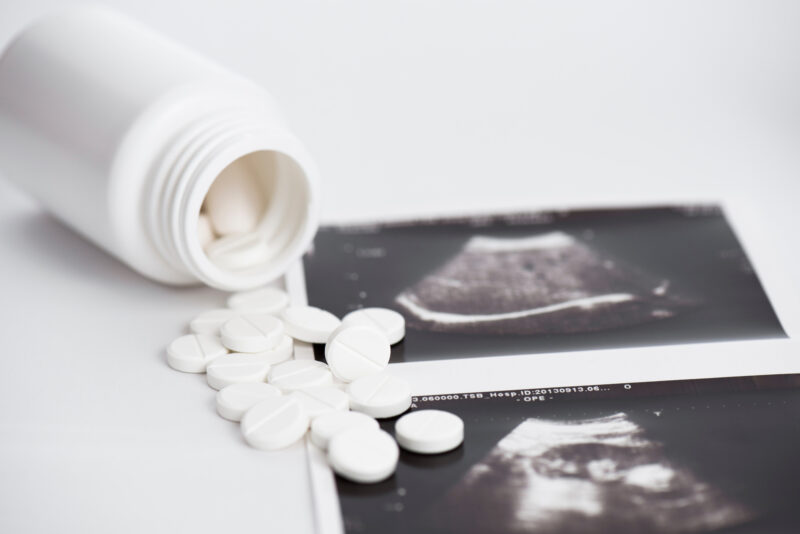Side Effects Of The Abortion Pill: What To Expect
The decision to take the abortion pill should come after careful consideration. It’s essential to be informed about what to expect, not just in terms of the procedure itself but the side effects that might accompany it.

For women considering the abortion pill, grasping potential side effects can help reduce concerns and help them prepare. This article outlines the pill’s fundamental aspects and potential associated risks.
Understanding The Abortion Pill
The abortion pill, which is different from emergency contraception, is specifically designed to terminate early pregnancies. The medication has two primary ingredients: mifepristone and misoprostol.
Here’s a brief overview of how the pill works: first, mifepristone inhibits the hormone progesterone, halting the pregnancy’s progression. Following that, misoprostol induces contractions, leading to the expulsion of the pregnancy. While many women globally have access to this medication, its availability and legal status can vary significantly between countries.
Common Side Effects Of The Abortion Pill
The abortion pill, as with other medications, might not work for all and carries potential risks. Here are typical side effects women might encounter after the procedure:
- Cramping And Bleeding
Women often experience cramps and light bleeding after consuming the abortion pill. This bleeding indicates the medication’s effect and can differ in intensity among individuals. Some may liken it to a heavy period, whereas others find it more intense.
- Digestive Upsets
Feeling nauseous or even throwing up is another side effect some women experience after taking the abortion pill. This side effect is generally short-lived and fades after the procedure. To manage this issue, try taking the medicine with food or ask your healthcare provider for anti-nausea medication.
Another possible digestive issue, such as diarrhea, may occur shortly after taking the pill. Though temporary, it’s essential to keep hydrated with water or drinks rich in electrolytes. If it persists for several days, consulting a healthcare professional is a wise choice.
- Fatigue
It’s common to feel unusually drained or more tired after the procedure. Your body is undergoing significant hormonal shifts and responding to the medication. It’s okay to rest and give your body time to recuperate.
- Headache
Some women report mild headaches after taking the abortion pill. This is a typical side effect of many medications and should fade within a day or two. Drinking water and resting can often alleviate the discomfort.
- Breast Tenderness
Changes in hormone levels could lead to breast tenderness or swelling. It’s like the sensation some women experience before their menstrual cycle. Wearing a comfortable bra and using cold compresses can provide relief.
- Chills And Fever
A slight increase in body temperature or chills might occur after the procedure. If the fever persists or is very high, it’s essential to seek medical attention, as this could be a sign of infection.
Rare Side Effects Of The Abortion Pill
Sometimes, the abortion pill leads to severe but uncommon side effects. These risks may become fatal if not managed by a healthcare professional immediately. Take note of the following concerns if you take an abortion pill:
- Heavy Bleeding
While some bleeding is expected, excessive bleeding can be a concern. If you’re soaking through your sanitary protection rapidly or passing large clots, you should consult a healthcare professional immediately. Heavy bleeding can be a sign of complications from the procedure.
- Painful Menstruation
Upon consuming the abortion pill, some women report experiencing intense and painful menstruation during their subsequent cycles. This heightened pain, akin to severe menstrual cramps, is typically temporary and diminishes over time. If the pain persists or seems unusual, it’s essential to consult with a healthcare professional.
- Infection
An infection after taking the abortion pill is rare but possible. Severe pain, prolonged fever, and foul-smelling discharge are the typical symptoms of this particular side effect. Immediate medical attention is a must if you suspect an infection.
- Allergic Reaction
Though rare, an allergic reaction to the abortion pill could happen. Symptoms like hives, severe itching, or difficulty breathing require urgent medical care.
- Incomplete Abortion
In some cases, the pregnancy might not be fully expelled after the procedure. Symptoms might include prolonged heavy bleeding and severe cramping. If there are concerns, it’s vital to see a healthcare provider immediately to evaluate the situation and determine further action.
Managing Side Effects
Physical side effects, while common, can often be managed at home with some straightforward measures as advised by your doctor. Common over-the-counter pain relievers, such as ibuprofen, can be effective in alleviating cramps. Using heating pads or warm compresses on your abdomen can also bring comfort. Allow yourself ample rest to let your body recuperate from the procedure.
On the emotional front, it might be a challenging period. Grieving after an abortion is normal and isn’t something for which you should feel at fault. Talking about your feelings, whether with close friends, family, or professional counselors, can offer solace and understanding during a difficult time.

Knowing When To Seek Medical Help
Monitoring your body after taking the abortion pill is essential. Some side effects are common, but others warrant immediate attention. Should you encounter any unusual effects, especially heavy bleeding or infection symptoms, reach out to a healthcare provider right away. Regular post-abortion check-ups also play a pivotal role in monitoring your recovery.
Addressing Misconceptions
Misinformation regarding the abortion pill is unfortunately widespread. One major misconception is that the abortion pill will impact future fertility. Despite popular opinion, the medication doesn’t have long-term effects on a woman’s ability to get pregnant later.
Many confuse the abortion pill with the morning-after pill; however, they serve distinct functions. While the abortion pill terminates an established pregnancy, the morning-after pill prevents pregnancy from occurring after unprotected intercourse. Always rely on trusted medical sources and professionals for guidance and accurate information.
Conclusion
It’s crucial to make an informed decision when it comes to one’s health and well-being, especially when considering an abortion pill. Understanding its mechanism and its possible side effects helps in making the ideal choices for your situation. Always prioritize your health, and if in doubt, don’t hesitate to seek advice from healthcare professionals.

